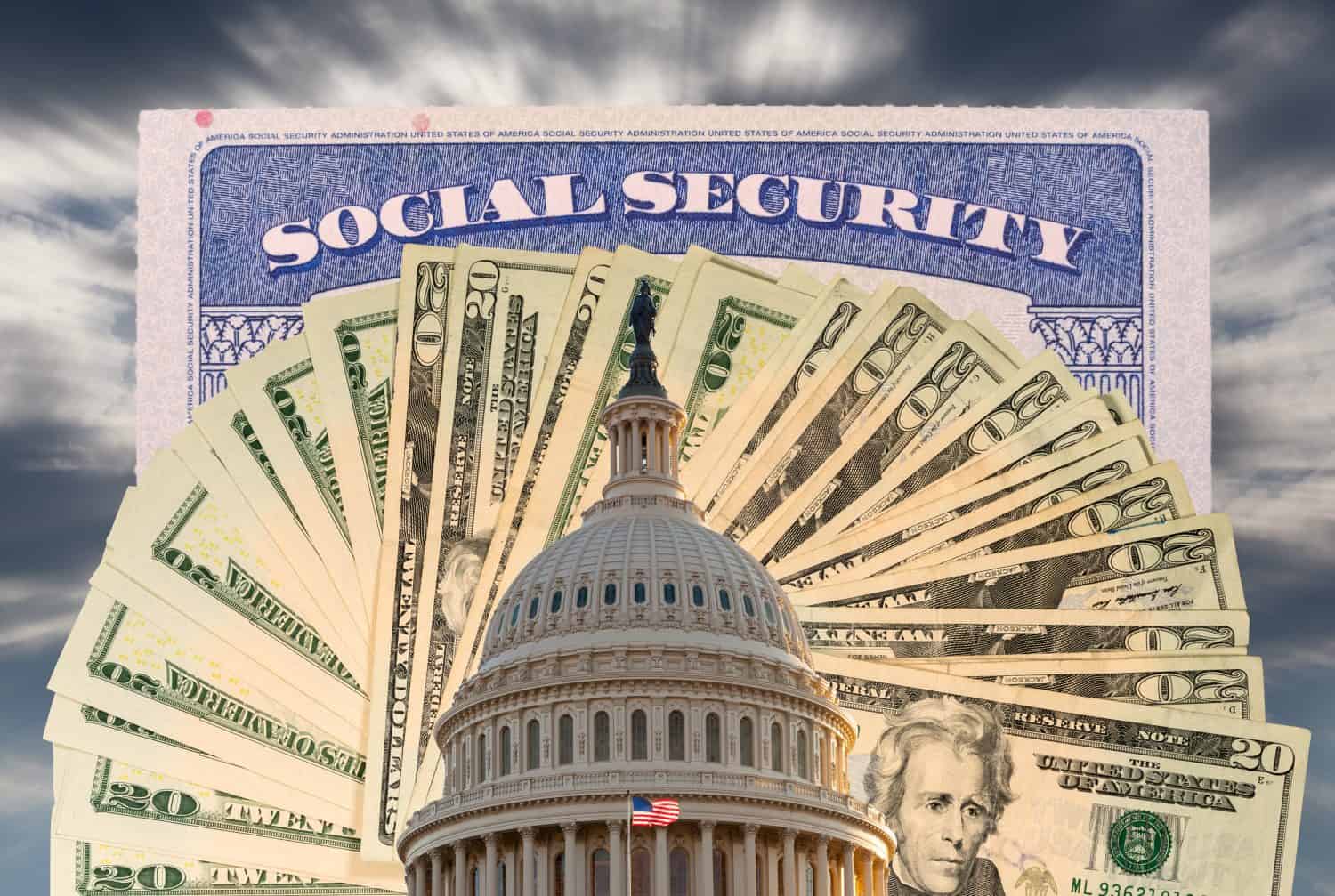Trade deal between the EU and US: Another stage in an escalating trade war
The trade deal agreed to on Sunday by US President Donald Trump and European Union (EU) Commission President Ursula von der Leyen marks a further stage in an escalating trade war that is being waged on the backs of the working class and dragging the whole world into the abyss.
A trade dispute has been raging between the US and the EU for months. Trump recently threatened to impose tariffs of 30 percent on imports from the EU worth €380 billion from August 1. The EU had agreed on a list of counter-tariffs on American goods worth €93 billion. To avoid a spiral of escalation, the EU has now made far-reaching concessions.
The US will impose tariffs of 15 percent on most goods from the EU, while imports from the US into the EU will remain duty-free. The existing US tariff of 50 percent on European steel and aluminum will remain in place. Only a few goods will be exempt from the tariffs. According to von der Leyen, these include aircraft and aircraft parts, certain chemicals, generic medicines, agricultural products and critical raw materials.
Exact details are not known, as the text of the agreement has not been published. It is also unclear whether pharmaceutical products, which account for a significant portion of European exports, will be subject to the 15 percent tariff or charged at a higher rate.
The EU has also committed to importing $750 billion worth of energy from the US over the next three years, investing $600 billion in the US, and purchasing several hundred billion dollars worth of American weapons. However, it is unclear how this will be achieved, as the EU has neither the authority nor the means to do so and is dependent on individual member states and private investors.
While Trump praised the agreement as “the biggest deal ever made” and von der Leyen claimed it would bring stability and planning security, European reactions ranged from cautious to angry.
EU Trade Commissioner Maros Sefcovic, who helped negotiate the agreement, described it as “the best deal we could get under very difficult circumstances.” He said it was “better than a trade war with Europe.”
German Chancellor Friedrich Merz welcomed the agreement, saying it had “succeeded in averting a trade conflict that would have hit the export-oriented German economy hard.” He specifically mentioned the German automotive industry, for which tariffs will fall from the current 27.5 percent to 15 percent. Although this is still six times as much as at the beginning of Trump’s term in office, it will not completely paralyze car exports.
Nevertheless, Merz also admitted that “the German economy will suffer considerable damage as a result of these tariffs.” The consequences would not be limited to Germany and Europe; “the consequences of this trade policy will also be seen in America.”
Against this backdrop, German business associations and media outlets openly criticized the deal. The Federation of German Industry (BDI) described the agreement as an “insufficient compromise” that sends “a fatal signal to the closely intertwined economies on both sides of the Atlantic.” The Chemical Industry Association (VCI) resignedly stated: “Those who expect a hurricane are grateful for a storm.”
The Wirtschaftswoche magazine complained: “Brussels has allowed itself to be blackmailed and has bowed to Donald Trump’s arbitrariness.” It quoted the Greek general Pyrrhus: “Another such victory and I am lost.” The short-term economic consequences of the deal may still be manageable, but “the real costs of this trade appeasement will be felt later.”
Italian Prime Minister Giorgia Meloni viewed the agreement positively because it avoids “a trade escalation between Europe and the US with unpredictable and potentially devastating consequences.” Spanish Prime Minister Pedro Sánchez also supported the trade agreement but “without any enthusiasm.”
In France, on the other hand, all parties from right to left railed against the agreement.
Prime Minister François Bayrou commented on the consequences for the EU on X, saying, “It is a dark day when an alliance of free peoples, who have come together to affirm their values and defend their interests, resigns itself to submission.”
Marine Le Pen of the far-right Rassemblement National described the agreement as a “political, economic and moral fiasco.”
And Jean-Luc Mélenchon of the pseudo-left La France Insoumise wrote: “Everything has been ceded to Trump, along with the right to change the rules of the game that have been established over 75 years of bilateral relations.” The only alternatives available, he said, were “disobedience to the empire” [the US] and “non-alignment.”
Contrary to the hopes of its supporters, the agreement between Trump and von der Leyen will not slow down the trade conflict with the US. This is not only due to Trump’s capriciousness, someone who can change his position at any time, but also to the deep crisis of US and world capitalism. As in the First and Second World Wars, the struggle of the imperialist powers for raw materials, markets and profits is once again taking on increasingly extortionate, destructive and military forms.
Trump is not the cause but the consequence of this development. The rise of the fascist-minded gangster from the real estate and casino industry to the top of the American state is a consequence of the rottenness of US and world capitalism—the unbridgeable gap between the ruling oligarchs and the masses of the population, the subordination of all social needs to the profit interests of a parasitic minority.
Europe is not a victim of the US—on the contrary. The old imperialist powers of Britain and France, as well as Germany, which tried to become the ruler of Europe in two world wars, have never resigned themselves to playing second fiddle to the US. They have supported all the crimes of US imperialism—from the wars in Korea, Vietnam, Afghanistan, Iraq, Libya to the recent genocide in Gaza and the attack on Iran. They are working hard to regain their military independence.
With the humiliating trade agreement with the US, voices calling for Europe to play a role as a world power are also growing louder. A commentary in the Frankfurter Allgemeine Zeitung (F.A.Z.) described Europe—quoting former Belgian Prime Minister Mark Eyskens—as an “economic giant, political dwarf, and military worm” and demands that “instead of whining, Europe must finally work on its weaknesses.” Among these weaknesses, the F.A.Z. also counts the failure to understand that prosperity “depends above all on work, not on further increasing the already oppressive national debt”—an undisguised call for more speed-up and social cuts.
One reason why von der Leyen agreed to a deal with Trump, apart from fears of an uncontrollable escalation of the trade war, is the continuation of NATO’s proxy war in Ukraine. The fear that Trump could reach an agreement with Putin over their heads in order to focus more on the conflict with China has been haunting the European powers for months.
“Unlike Beijing, a militarily vulnerable Europe that continues to need NATO cannot afford a tough trade conflict with Washington for security reasons,” noted the F.A.Z. The European powers need time to implement the already approved doubling and tripling of the military budget to 5 percent of GDP.
This issue certainly played a role in the negotiations on the trade agreement. The EU was prepared to swallow high tariffs if Trump remained on its side in the war against Russia. It is probably no coincidence that, one day after the agreement with von der Leyen, Trump increased the pressure on Russia and shortened the time he gave Putin for a negotiated solution to a few days.
The working class on both sides of the Atlantic does not have any interest whatsoever in supporting the ruling class’s policy of war and trade war. It is neither their job to encourage the European bourgeoisie to take a harder line against Trump, nor should they fall for the lie that tariffs protect jobs. The opposite is true: The costs of war and trade war will inevitably be dumped on their shoulders.
Nothing demonstrates the transformation of the trade unions into henchmen of capital more than their support for rearmament and trade war. LFI leader Mélenchon and other pseudo-leftists are also increasingly openly defending the nation and the capitalist state in the face of the intensifying trade war.
Workers must reject this. Marx and Engels’ statement that “workers have no fatherland” is more relevant today than ever before. European and American workers must unite and combine their struggles against social spending cuts, war and oppression with the struggle against their causes: capitalism. The International Committee of the Fourth International and its sections, the Socialist Equality Parties, are fighting for this perspective.


